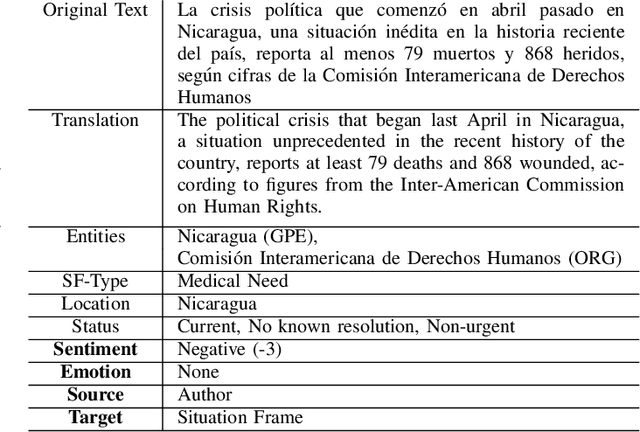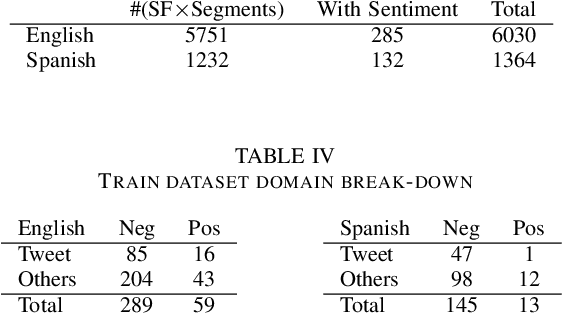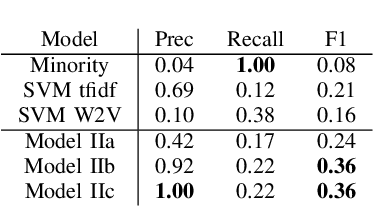A system for the 2019 Sentiment, Emotion and Cognitive State Task of DARPAs LORELEI project
Paper and Code
May 01, 2019



During the course of a Humanitarian Assistance-Disaster Relief (HADR) crisis, that can happen anywhere in the world, real-time information is often posted online by the people in need of help which, in turn, can be used by different stakeholders involved with management of the crisis. Automated processing of such posts can considerably improve the effectiveness of such efforts; for example, understanding the aggregated emotion from affected populations in specific areas may help inform decision-makers on how to best allocate resources for an effective disaster response. However, these efforts may be severely limited by the availability of resources for the local language. The ongoing DARPA project Low Resource Languages for Emergent Incidents (LORELEI) aims to further language processing technologies for low resource languages in the context of such a humanitarian crisis. In this work, we describe our submission for the 2019 Sentiment, Emotion and Cognitive state (SEC) pilot task of the LORELEI project. We describe a collection of sentiment analysis systems included in our submission along with the features extracted. Our fielded systems obtained the best results in both English and Spanish language evaluations of the SEC pilot task.
 Add to Chrome
Add to Chrome Add to Firefox
Add to Firefox Add to Edge
Add to Edge